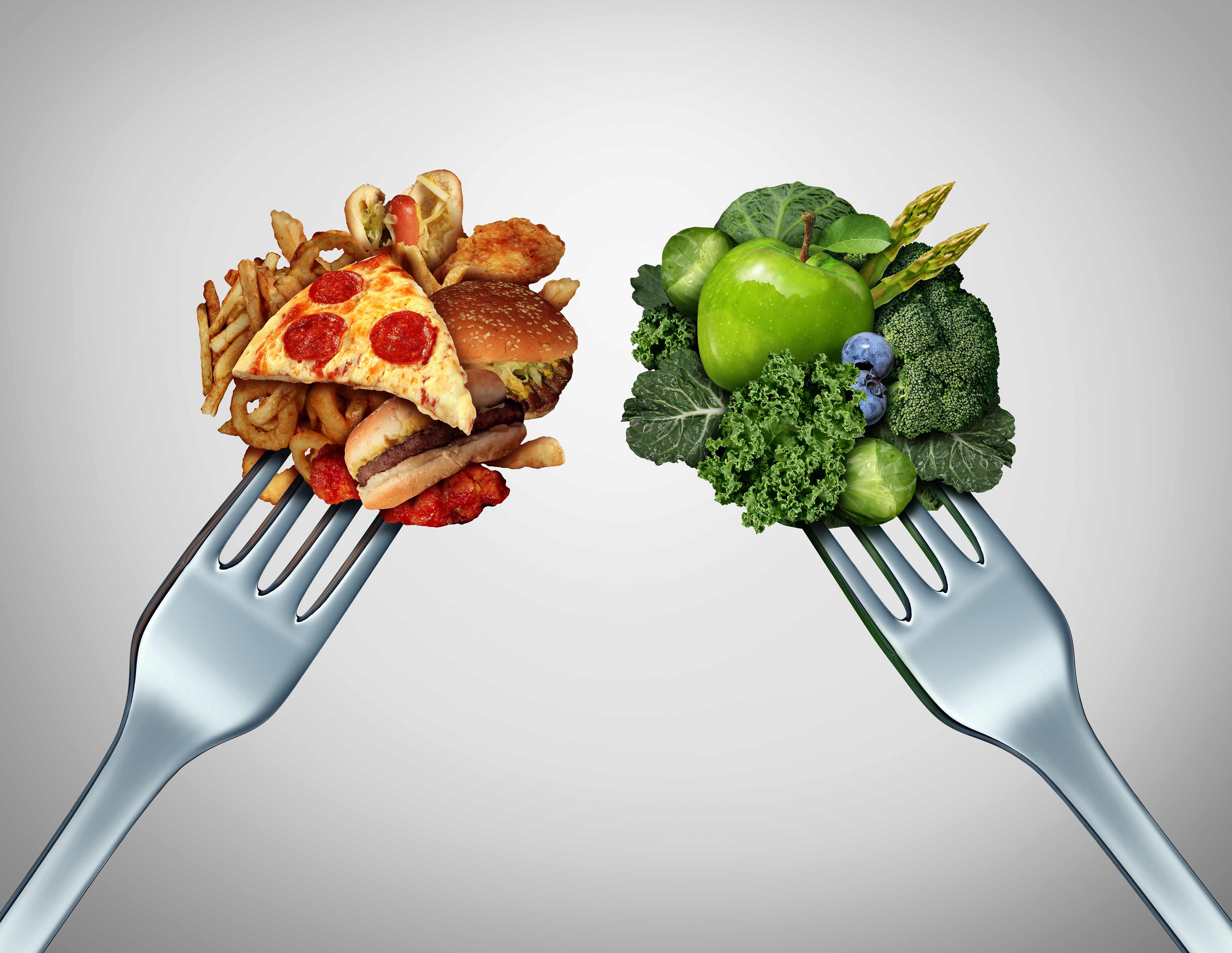Have you ever thought to yourself “I did so well on my diet this week that I deserve a cheat day this weekend?” This is a common thought of chronic dieters—the all-or-nothing way of thinking. After a long week of strict dieting, eating until feeling stuffed, or just eating because it’s there becomes a lot easier because you are exhausted. This vicious cycle of deprivation, overindulgence and guilt is tiring and it rarely leads to long term success with weight loss. You can counteract this way of thinking by focusing on moderation. Read on to discover how to find the middle ground when it comes to your eating habits and the way you think about them.
Consistency is key
No more strict days. No more “cheat” days. Instead, aim to make the best choices you can every day and let go of perfection and let good be good enough. In fact, if “good enough” becomes consistent it can make quite a difference long term. The words “always”, “never” and “must” can place undue pressure on you. Think of small goals you can absolutely meet in the beginning and let that be good enough. When you are able to meet your goals, you build confidence in yourself. Confidence can foster motivation to continue. Remember, something is always better than nothing!
Cut out the negative thinking
Negative self-talk can influence your actions. Chronically telling yourself you can’t do it can weaken your self-esteem and slow down your progress. Don’t repeat phrases to yourself that you would never say to a friend. Instead, replace these thoughts with positive statements and let good be good enough. If you need some support to stay positive, consider doing a short meditation every day, where you focus on positive feelings. Write down one good thing about yourself every day, so you can focus on what you have accomplished. One set back does not mean failure!
Make food more satisfying
You can never be satisfied by food you did not want to begin with. Focus on making foods more satisfying by adding some of your favorite foods in every day. For example, if you love cheese, try having a small amount on a salad during the day. If chocolate is your favorite, think about having one piece a few times per week or a small cup of hot chocolate with fat free milk to satisfy that craving. Pick and choose when it makes sense to “treat” your self – like special occasions and social events. Keep in mind that foods are not “bad” or “good”. They can all fit into a healthy diet.
Set realistic expectations
Wouldn’t it be great if losing weight could solve all your problems and get rid of all your stress? Losing weight will change some aspects of your life, but it might not be all that you imagine. Real benefits of weight loss are increased energy, sleeping better, feeling stronger and living longer. Just as meeting your goals can build confidence, setting expectations of yourself that are unrealistic can make you feel like a failure. You are not expected to be perfect 100% of the time.
The key to breaking the all-or-nothing thinking is to be flexible, set realistic, small goals and to not expect perfection. You will make mistakes but, this does not equal failure. Small mistakes are how you learn and move on.
“Failure is only the opportunity to begin again, only this time more wisely.” Henry Ford
In good health,
Jennifer
